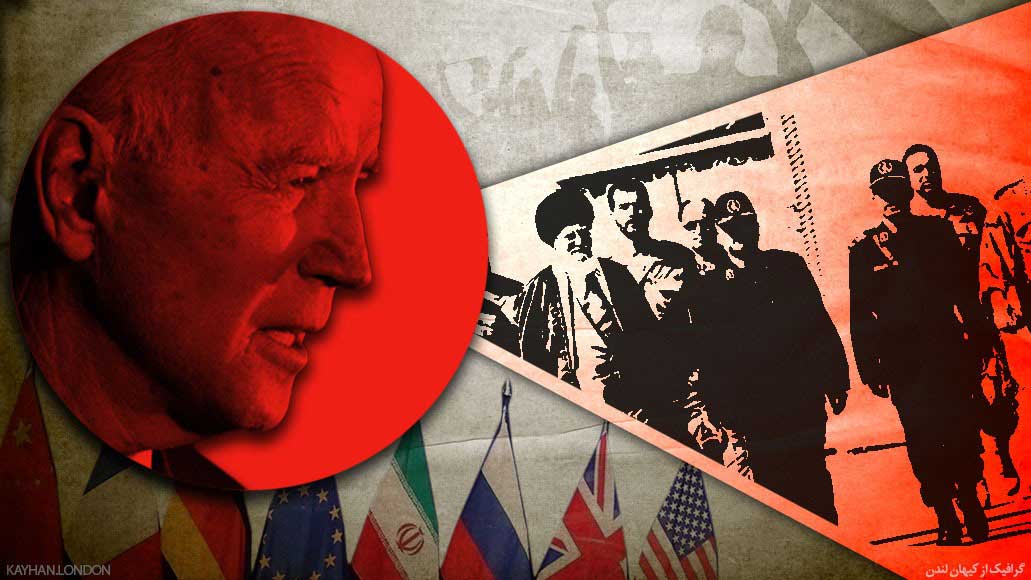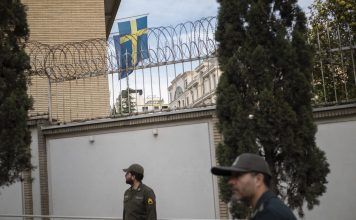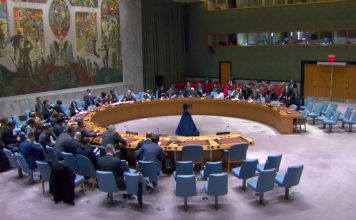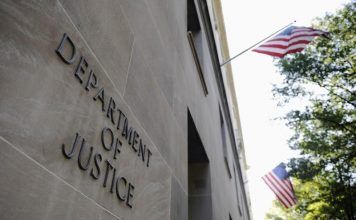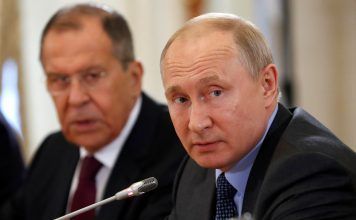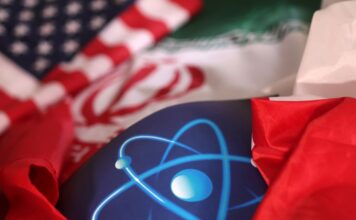By Ahmad Rafat
Joe Biden is the sixth U.S. president to have had to deal with Iran’s Supreme Leader Ayatollah Ali Khamenei in the past 31 years. Contrary to popular belief, and despite Mr. Biden’s commitment to rejoining the Joint Comprehensive Plan of Action (JCPOA), better known as the Iran nuclear deal, it is unlikely that Tehran and Washington will sit for a fresh round of talks anytime soon.
Any fresh round of negotiation comprises four issues. They include Iran’s nuclear program, ballistic missile project, regional activities and support for armed Shia militias, and human rights record.
Biden is undoubtedly sincere in bringing Iran back to the negotiation table. He was then U.S. President Barack Obama’s vice president during the 2015 nuclear negotiations and has an in-depth understanding of the JCPOA.
Biden’s current administration includes several key members of the 2015 nuclear negotiation team. They are Biden’s National Security Advisor Jake Sullivan, Secretary of State Antony Blinken, Under Secretary of State Wendy R. Sherman, and Central Intelligence Agency (CIA) Director William Burns.
While these individuals’ presence in the new Biden team will undoubtedly help the negotiations, it would be challenging to get the U.S. to rejoin the nuclear deal. We should not forget that Biden and his administration have inherited former President Donald Trump’s “Maximum Pressure” policy on Iran.
It is also doubtful that Biden will ease or lift economic sanctions quickly. The U.S. will most likely use the sanctions as leverage to pressure Iran into coming back to the negotiation table.
In their recent interviews with the media, both Secretary Blinken and Mr. Sullivan have said that the U.S. will rejoin the JCPOA only after Iran has returned to full compliance with the nuclear deal. They have noted that the U.S. is seeking a broader and lasting agreement.
The U.S. and its European allies believe that the JCPOA in its current state is inadequate and must be expanded to include Iran’s missile program and regional activities.
In an interview with the Dubai-based Al Arabiya on Jan. 29, French President Emmanuel Macron said: “Saudi Arabia must be involved in fresh talks on Iran deal,” adding that “talks with Tehran would be rigorous.”
While President Hassan Rouhani’s administration has until the next Iranian presidential election in June to revive the nuclear deal, Mr. Khamenei and senior commanders of the Islamic Revolutionary Guards Corps (IRGC) are in no hurry to revisit the JCPOA. They have also said that Iran’s ballistic missile program and regional activities, including support for armed militias in Yemen, Syria, Iraq, and Lebanon, are an integral part of the “Axis of Resistance” and are not open for discussion. They insist talks should be limited to the nuclear issue, and no other country besides the P5+1 should be invited to join the negotiations.
So far, only Russia has sided with Iran in opposing the broadening of talks to include other issues besides the nuclear program.
“The most logical thing for the U.S. to do would be to rejoin the previous agreement fully within the JCPOA, without preconditions, of course,” Russia’s First Deputy, Permanent Representative to the UN Dmitry Polyanskiy, said on Dec. 22. “We expect that the new U.S. administration will realize that and take the right steps soon. The entire world will benefit from it.”
China — another member of the P5+1, which negotiated the 2015 JCPOA — has not commented on the issue so far. The other members of the P5+1 are Britain, Russia, France, and the U.S. plus Germany.
Khamenei and senior IRGC commanders consider the wholesale rejection of the U.S. as the cornerstone of Iranian foreign policy. Most supporters of the Iranian regime believe this policy has worked well so far.
[aesop_image img=”https://kayhanlife.com/wp-content/uploads/2019/06/2009-04-14T120000Z_816861627_GM1E54F0B3201_RTRMADP_3_IRAN.jpg” panorama=”off” credit=”FILE PHOTO: A member of IRGC shoots with his rifle towards the U.S. flag during a war exhibition at a military base in central Tehran. The Persian script reads, ‘Down with USA.’ REUTERS./ ” align=”center” lightbox=”on” captionsrc=”custom” captionposition=”left” revealfx=”off” overlay_revealfx=”off”]
Adopting a hostile policy towards the U.S. has made Iran a significant player in the region since the Islamic Revolution in 1979. The IRGC is the principal arm of the Iranian regime executing this foreign policy.
While U.S. sanctions have eliminated the private sector from the Iranian economy almost entirely and forced 60 percent of the population into poverty, the IRGC and institutions operating under its auspices have filled the vacuum and control a significant portion of the country’s economy.
The hostility towards the U.S. has served the IRGC and Khamenei to achieve their mutual goals. Their principal aim is to see sanctions lifted without having to change their hostile stance against the U.S. and its Arab and regional allies.
The Iranian regime would be content with selling its oil, which would ensure its survival and enable it to resume support for militia groups it controls in the region.
In short, Tehran is seeking a tactical and not a strategic agreement with the U.S. and the West.
Since its establishment 42 years ago, the Islamic Republic has shown flexibility and accepted certain conditions when faced with an existential threat. However, Tehran only agrees to terms and conditions that can be changed, like those in the nuclear deal.
Whatever the situation, Khamenei will play a pivotal role in any negotiation.
While conservatives, moderates, and reformists will be instrumental in how the fresh round of talks is held and progress, they will play no part in setting policies or determining the negotiations’ outcome.
Khamenei sets the policies and makes the final decisions. The government must implement Khamenei’s directives; otherwise, talks will not yield any results. Khamenei must also give the government the green light to take part in discussions on any specific issue.
Human rights have never been part of any talks with Iran, and it is unlikely that they will be included in future negotiations.
In an interview with the Italian newspaper Corriere della Sera, the new U.S. Special Representative on Iran Rob Malley said Joe Biden’s administration “may pay more attention to Iran’s human rights record.”
This article was translated and adapted from Persian by Fardine Hamidi

